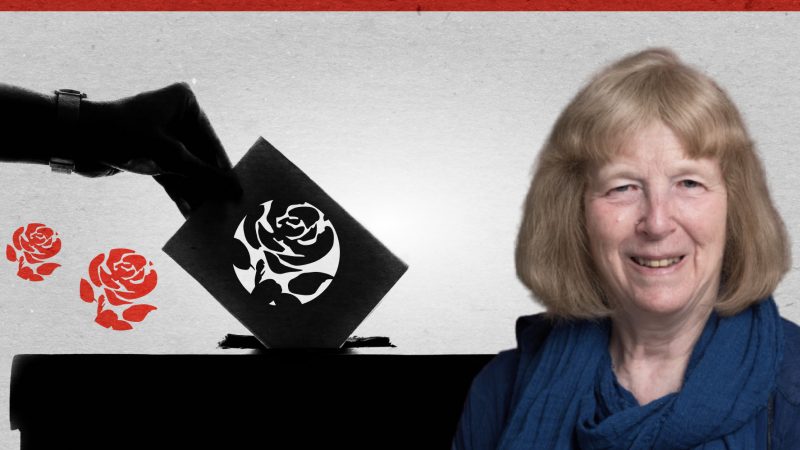
Labour promises to give voters security, prosperity and respect. But local parties also need to be valued and respected, and many feel their powers have been eroded through the years and under various leaders. Local parties must be able to:
- Choose who represents them, within reasonable safeguards; and
- Receive an adequate share of subscription income.
I pledge to champion these issues if I am re-elected to the national executive committee (NEC) in the ongoing elections this year.
Choosing parliamentary candidates
Local parties have traditionally controlled selection processes except for by-elections and last-minute vacancies. However, the 2017 general election was announced out of the blue. With only two weeks to go before nominations closed, the NEC had little option but to endorse all sitting MPs bar one and impose candidates in every other seat. The NEC then promised never to do this again.
But in 2019, after an election had been anticipated for months, the NEC did it again. The resulting anger fuelled the rule change carried at the 2021 conference. This specifies that, for snap elections or by-elections, a panel of three Constituency Labour Party (CLP) members, an NEC member and a regional executive member will shortlist candidates, with hustings held at least a week later. It also says – and not everyone notices this – that, if a seven-day interval is not possible, the CLP executive will simply pick the candidate.
After conference, the NEC belatedly started looking for ways to bypass the new rule, using the catch-all clause which gives the NEC authority to modify any rules or procedures where it deems that this is required. The compromise, with three NEC representatives, a regional representative and a CLP representative, held uneasily through three by-elections before exploding in Wakefield.
But, as I wrote in November 2021, overriding an explicit conference decision smacks of bad faith. Instead, the NEC should have preserved the spirit of the new rule while resolving ambiguities and should now develop a workable version for the 2022 conference. However, I would argue that, if only a few days are available between shortlisting and hustings, the members rather than the executive committee should choose the candidate, and welcome comments on this.
Finally, this does not mean dropping all constraints. If due diligence checks reveal problems, the NEC can refuse to allow a candidate to go forward, but beyond that, members should decide.
The new normal
Procedures for normal selections also changed in January, however. CLPs lost the right to longlist, with panels of NEC and regional representatives taking over in every seat. I was the only NEC member to object, with others persuaded by the guarantee that all candidates nominated by trade unions would be longlisted. The unions and the leadership both benefit from these arrangements, but ordinary members are shut out. I believe CLPs should regain the right to longlist as well as shortlist their candidates.
I was also in a minority of one in arguing for a spending cap of £500 rather than £3,500. Opponents said that £500 was unrealistic and unenforceable. But are we serious about encouraging working-class applicants without rich backers or connections in high places? Clearly, I cannot reverse these changes without wider support, but if members send evidence of local stitch-ups, low-income candidates denied opportunities or other concerns about the process, I promise to keep campaigning against exclusion and unfairness.
A fair deal for local parties
Back in 2011, conference changed the system for distributing the CLP share of membership subscriptions. Costs that CLPs previously had to cover, such as insurance, the Euro-levy and Contact Creator, were now paid centrally, and £1.50 per member was returned to CLPs. The rest of the money went into dedicated NEC funds, with CLPs able to bid for money to employ local organisers or promote democracy and diversity. While previously on the NEC, I got the £1.50 increased to £2.50 per member, indexed to inflation. It is now about £2.80.
However, the underlying model is no longer fit for purpose. CLPs face growing demands, with shrinking resources and extra regional levies. There are no consistent rules for allocating the NEC funds. Few CLPs even bid, organiser support is channelled towards national priorities and other grants tend to go to CLPs with connections or to central projects. Last year, I won a £1,500 refund to every CLP on the basis that the Euro-levy is no longer needed. I am still pushing for wider reform, as promised by conference in 2018, to give CLPs a fairer – and larger – share.
Your voice
I have always fought for members to be heard. The leadership, MPs, trade unions, councillors and socialist societies are all represented on the NEC. I am there to advocate for ordinary members, and if I am re-elected I will continue to do. Members will not always share my view, but I will always listen and always report back. That is my promise to you.




More from LabourList
‘What Batley and Spen taught me about standing up to divisive politics’
‘Security in the 21st century means more than just defence’
‘Better the devil you know’: what Gorton and Denton voters say about by-election